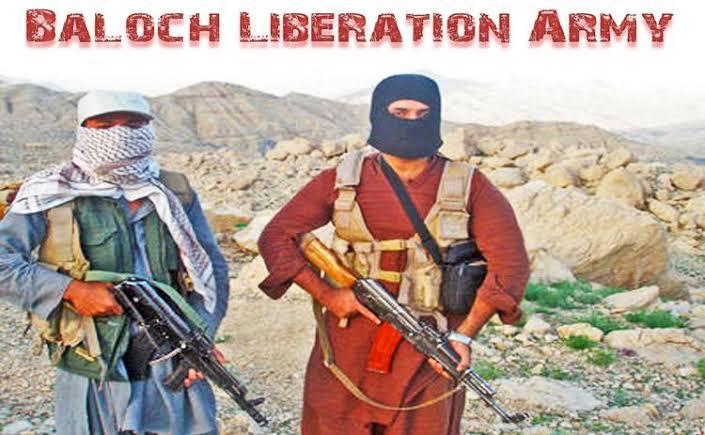The Baloch Liberation Army (BLA) has announced the successful completion of “Operation Herof,” which it describes as the first phase in a broader campaign to reclaim control over Balochistan.
In a statement to the media, BLA spokesperson Jeeyand Baloch claimed that the operation resulted in the deaths of over 130 Pakistani military personnel. According to the BLA, the operation involved controlling major highways across Balochistan for 12 hours and the Bela military camp for 20 hours.
The BLA framed “Operation Herof” as part of a long-standing resistance against what it calls the “occupation” of Baloch land by the Pakistani military, which it says has persisted for 76 years.
The group described the operation as a significant milestone, stating that it marks the beginning of a more “extensive campaign to regain sovereignty over Balochistan.”
Jeeyand Baloch characterized the BLA as the modern continuation of a historic resistance by the Baloch people. He claimed that through “great sacrifices, tireless efforts, determination, and steadfastness” of Baloch fighters, the BLA is evolving into a “formidable national military force.”
The BLA reported that 800 fighters from its “Fateh Squad” and “Special Tactical Operations Squad” (STOS), along with seven “fidayeen” (self-sacrificers) from the Majeed Brigade, participated in the operation.
The spokesperson stated that all seven “fidayeen” successfully completed their missions and “embraced martyrdom,” while one fighter from the “Fateh Squad” was “martyred” in a clash with Pakistani forces in Bolan.
During the 20-hour control of the Bela military camp, the BLA claimed to have killed 68 Pakistani military personnel and injured dozens more. The group also reported destroying multiple military checkpoints and a camp, seizing significant amounts of weapons and ammunition. In total, the BLA asserts that 130 Pakistani military personnel were killed during “Operation Herof.”
The BLA spokesperson further said that the BLA fighters established blockades on major highways across Balochistan, maintaining these positions for 12 hours. During this time, the group claims to have killed 62 military personnel and seized weapons and equipment from Pakistani forces.
During the operation, the BLA stated that it issued warnings to local police and Levies forces, urging them to remain neutral and not support the Pakistani military. The BLA claims that 22 police and Levies personnel were temporarily detained and released unharmed after the operation concluded.
However, the group reported that in Kalat, at the Garrari location, its fighters engaged in combat with Levies and police forces who allegedly resisted alongside Pakistani troops, resulting in casualties.
The BLA emphasized that it does not target police and Levies forces as a policy, considering them fellow Baloch. However, the group warned that any individual or institution aiding the Pakistani military would face severe consequences.
The BLA also reported that during the highway blockades, its fighters inspected passenger buses and executed individuals found carrying identification from the Pakistani military, intelligence agencies, and Frontier Corps, who were returning to camps in Balochistan after vacations. The group stated that these individuals were sentenced to death, accusing them of being “intruders” in Balochistan.
Additionally, the BLA claimed responsibility for setting fire to vehicles transporting resources from Balochistan to other parts of Pakistan but stated that ambulances were allowed to pass and that no harm was done to civilian vehicles.
The group accused “plainclothes Pakistani military personnel and so-called death squad operatives” of setting fire to civilian vehicles after the blockades were lifted, allegedly to create distrust between the Baloch public and BLA fighters.
The BLA declared that “Operation Herof” was only the first phase of its broader strategy to reclaim Balochistan and that future operations would be “even more intense and widespread.”
The group called on the Baloch people to fully support the BLA in what it described as a “national liberation war,” urging them to intensify and modernize the struggle and to join the armed resistance against the “enemy in every street and alley of Balochistan.”
The BLA concluded by stating that it would soon release further details about the attacks and the identities of the fighters killed in “Operation Herof.”

